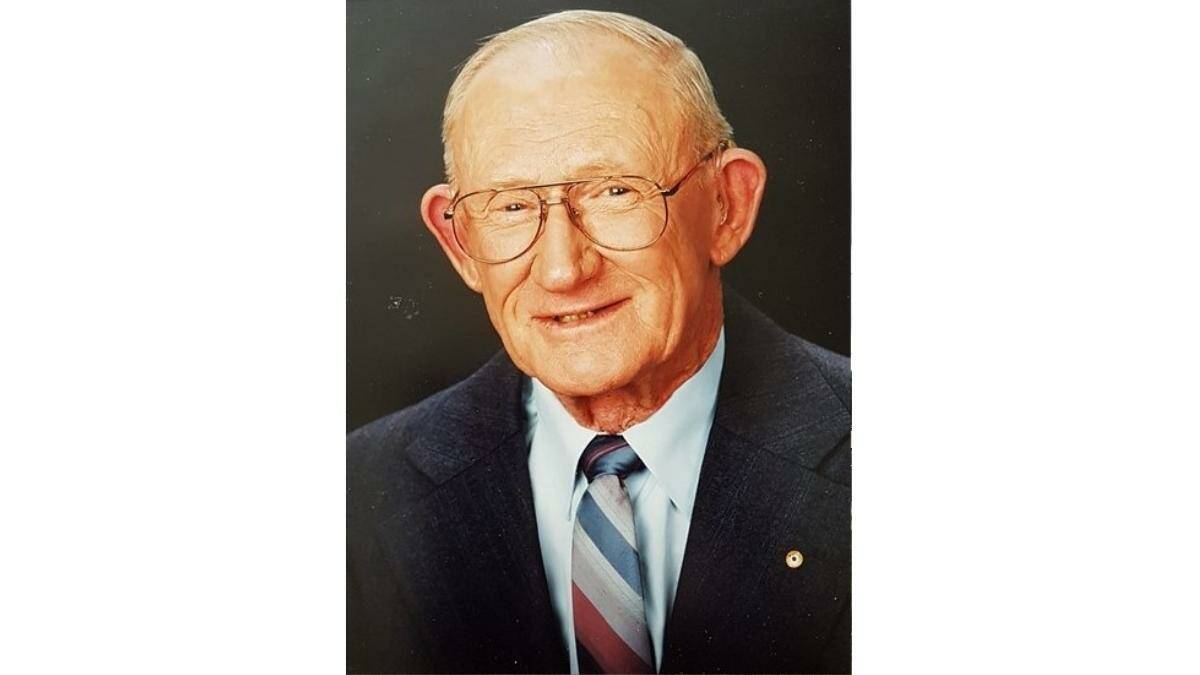
Ken Jones: 1924-2022
Kenneth Norman Jones AO CBE died on January 19, aged 97. A Commonwealth public servant for 44 years, his most notable achievements were in the field of education. He was instrumental in guiding and implementing the policies of successive governments that led to Commonwealth involvement at all levels of Australia's education system.
He explained in his oral history interview with the National Library in 1986: "I'm an administrator: I've not been a specialist or a professional in any particular discipline and, when I look at my 19 years in education, that was an advantage. I had to establish my credentials with the professionals, but I didn't come with any particular bias."
Born in Bundaberg in 1924, Ken Jones came from a working-class background. Unlike his older brother who left school at age 14, he was able to complete his secondary schooling at Bundaberg High School. The school was not far from the railway station and he recalled seeing men "jumping the rattlers" during the Depression.
He joined the Commonwealth Public Service straight from school in 1941, mindful of the importance of secure employment. His first job was a clerical position with the Registrar of Bankruptcy in Brisbane. The war diverted him into the Army for four years, which included two in PNG (though he never fired a shot in anger). Towards the end of this period, he began studying economics and, on his return to Australia, he applied to complete a bachelor of commerce at the University of Queensland under an ex-servicemen's scholarship.
While boarding in Brisbane he met Joan whom he married in January 1949. Post-war reconstruction offered exciting opportunities for young graduates and Jones moved to Canberra joining the Department of Trade and Customs and then the Department of the Prime Minister as it was starting to build its policy coordination role. Jones' career blossomed: by 1958 he was assistant secretary of the cabinet secretariat responsible for managing cabinet business as well as relations with the parliament and foreign dignitaries. Jones was responsible for the various cabinet committees and worked closely with prime minister Menzies. A two month overseas trip with Menzies led to the PM referring to Jones as "7-up", because he drank lemonade rather than alcohol.
Jones' involvement with education policy followed the 1957 Murray Committee Report on Australian Universities which led to the establishment of the Universities Commission which provided Commonwealth funding under a share arrangement with the states. Menzies extended Commonwealth involvement in education in the early 1960s including through capital grants for school laboratories and scholarships for young people to attend university. In 1964, the PM's department created an education division which Jones led. A key task was to advise Menzies on the response to the Martin Report on Higher Education; that response extended Commonwealth involvement to Colleges of Advanced Education.
In 1966, the government created the first Department of Education and Science under minister John Gorton, with an academic scientist (Sir Hugh Ennor) as secretary and Ken Jones as the next most senior officer; in practice, it was Jones who was in charge of the department's education functions. Over the following six years, working with Gorton, and then Malcolm Fraser, Jones successfully established the framework for Commonwealth funding of schools, initially via capital funding then per capita grants to non-government schools, particularly the Catholic school systems, and then the beginning of "needs-based" funding of government and non-government schools under the McMahon government. The Commonwealth also extended its financial support of higher education, incorporating teachers' colleges as CAEs. Jones had to help the Commonwealth overcome States' resistance, particularly from their bureaucrats.
The success of these developments led the new Whitlam government to appoint Jones as secretary of the new Department of Education in January 1973 under minister Kim Beazley (snr) to lead its ambitious education program. Initiatives Jones was involved in implementing included establishing the Schools Commission, taking full financial responsibilities for universities and CAEs, the abolition of university fees, establishment of the Preschools Commission and assistance for Aboriginal children's education. Jones was instrumental in getting the Commonwealth interested in Technical and Further Education, proposing the inquiry by Myer Kangan in 1973.
Jones continued as secretary under the Fraser government with Senator Carrick one of four ministers over the period from 1975 to 1983. It was a period more of consolidation than further expansion.
With the election of the Hawke government in March 1983, Jones was appointed secretary of the new Department of Education and Youth Affairs with Susan Ryan as minister. Through a messy and rather disrespectful process, however, he was replaced within weeks by Peter Wilenski; eventually, he was appointed secretary of the Department of Administrative Services, a position he held until his retirement in 1986.
His National Library interviewer referred to him as a "most upright and correct public servant". Jones said the first priority in working with ministers is to establish complete confidence between the two as individuals: willingness to work together, understanding that there'll be free exchange of views and information, knowing confidences will be respected and, whatever differences you may have, there should subsequently be a common front and to move on. He also spoke about the minister needing to respect the secretary's advice and capacity to deliver; to be really effective the public servant's got to know that his minister will fight for him in the forums that really matter.
Key to his success was the importance Jones gave to interacting with others across the education system. Amidst the array of commissions, federal structures, independent institutions and interest groups, Jones was able to steer and coordinate the education system, to offer informed advice and to deliver the policies of the elected government.
A very private man and practicing Catholic, Ken Jones is survived by his eight children (Anne, Michael, Patrick, Margaret, Peter, Kevin, Stephen and Bernadette) and seven grandchildren. His wife of over 60 years, Joan, died in 2013.







